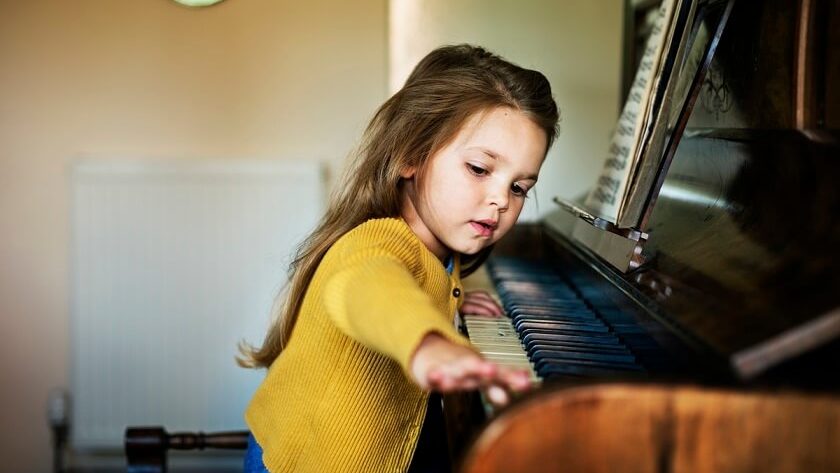Music is often referred to as the soul’s language. It is a global means of self-expression, which is why the proverb “Where words fail, music speaks” was coined. Young children who are immersed in the great world of music develop a lifetime love of music, and parents may do a lot to improve their children’s musical abilities.
Understanding the importance of music in child development
Parents use music to engage with their children, soothe them when they’re upset, or just to show their love and delight from the minute their newborns are born. Many parents are unaware that this sense can be used as a foundation for enhancing children’s development by enhancing their cognitive, linguistic, and physical abilities.
For instance, according to the NAMM Foundation, learning to play an instrument can increase academic accomplishment by enhancing children’s mathematics skills and guaranteeing higher SAT scores. Additional studies have revealed advantages of music training, such as greater memory, quicker brain development, better reading, and quicker language learning.
Recognizing the musical talent in children
Each one of us has natural abilities they can use to their advantage. It’s important to recognize those talents on time and work on improving them. The question is, how do you know whether your child has an aptitude for melody and rhythm? Being able to keep a beat, identify musical instruments by sound, and recognize instruments and vocals that are off-pitch can all be great indicators that your child is musically gifted.
While recognizing the musical talent in your child is crucial, not all kids display these talents. In these cases, it’s best to provide encouragement for your child and empower them to develop their untapped potential. Which brings us to our next tip…
Photo by Jelleke Vanooteghem on Unsplash
Enrolling children in music classes
When they’re still quite young, children tend to absorb everything around them. Their brains are like sponges, which makes it easier for them to acquire new skills. This is why it’s important that musically gifted children start getting musical education early on, ideally when they’re still toddlers.
Other than being a fun activity, music classes also incorporate a lot of singing, rhythm, and elementary piano, which helps develop a musical ear. As they’re being immersed in the creation of music, a toddler develops their understanding of the language of music and becomes more ‘fluent’ in it. By reinforcing that understanding early on, parents can ensure that the music becomes their child’s second language.
Exposing children to different music genres
Music is a universal language, and different songs will carry different emotions with them. Because of that, different genres will appeal to different individuals, and it’s up to each one of us to discover what we’re most drawn to.
As a parent, you should strive to expose your child to a variety of genres and give them a chance to explore. Jazz, country, classical, or Top 40 – there are many options to choose from that can help deepen the child’s musical understanding. Experimenting with different genres is bound to expand their horizons, so have fun experimenting and exploring.
Helping your teenager master music rhythm
The sense of rhythm is often what distinguishes a professional sounding musician from an amateur. Different individuals will have different rhythmic abilities, but the good news is that rhythm and timing are things that can be learned and practiced. While rhythm often tends to get confused with the beat, it’s important to distinguish the two.
The beat is actually a steady pulse that the rhythm is based on and makes up the foundation for a musical piece. There are websites that can help you learn more about beat-making which can be especially interesting to teenagers. Teaching them how to make their first beat can be a great way to help your teenager master rhythm while also helping them understand math better since the two are closely connected.
Music as a life’s calling
The activity of playing music can be enjoyable as your child gets older. But eventually they’ll have to choose whether it’s just a pastime or whether there’s more to it. They could want to form a band with their buddies or give solo performances a shot. They might even develop an interest in music production and work on tracks by themselves or other musicians.
There are numerous examples of people who turned their passions into successful jobs, so if your child decides music is their calling, do all in your power to help them along the path.
Cultivating the love for music from a young age can be beneficial for children in a number of ways. Rely on these tips to develop your child’s musical skills and help them enjoy music on a whole new level.






